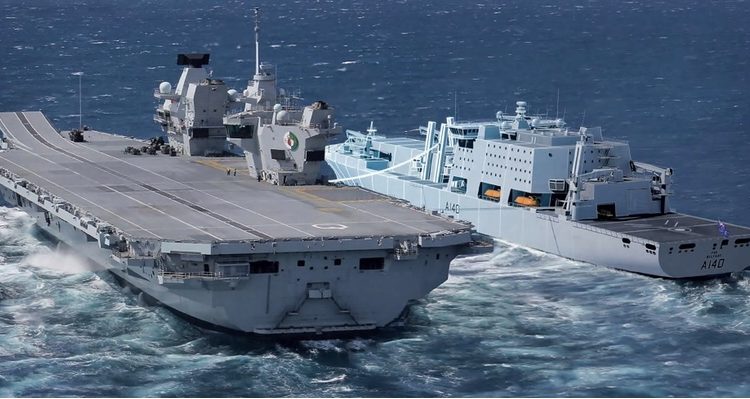Cammell Laird targets share of £24bn Navy budget
Merseyside shipyard Cammell Laird is looking to grab a slice of the £24bn Ministry of Defence budget for new Royal Navy vessels to be spent in the next four years. Tony McDonough reports
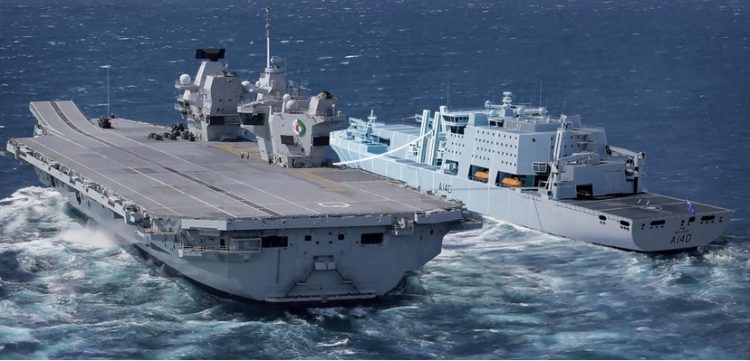
Birkenhead shipyard Cammell Laird will look to grab a slice of the £24bn budget for new vessels allocated to the Royal Navy over the next four years.
In particular, Cammell Laird is targeting a contract to build three replacement Fleet Solid Support ships of the Royal Fleet Auxiliary (RFA), civilian-crewed vessels that will offer logistics support to the two new Queen Elizabeth Class aircraft carriers.
On Thursday, Prime Minister Boris Johnson visited Cammell Laird to unveil the Government’s £4bn National Shipbuilding Strategy. This will see a 30-year pipeline of more than 150 Royal Navy and civilian vessels.
However, the Royal Navy has already been allocated £24bn by the Ministry of Defence to spend over four years on a number of new vessels. They include:
- Eight Type 26 frigates, the first three of which are currently being built by BAE Systems on the Clyde and supporting 4,000 jobs across the UK.
- Three replacement Fleet Solid Support ships to support the Queen Elizabeth Class aircraft carriers operating anywhere in the world.
- Five Type 31 frigates, on which the steel was cut for the first vessel, HMS Venturer, at Babcock in Rosyth in September 2021.
- A new class of up to five Type 32 frigates to extend the Royal Navy’s forward presence around the world.
Over the past decade Cammell Laird has established particular expertise in what is described as “block building”. That is building sections of ships that are then transported and assembled at other locations.
Between 2014 and 2016 the Birkenhead shipyard built flight deck hangers and accommodation sections for the new HMS Queen Elizabeth and HMS Prince of Wales aircraft carriers for the Ministry of Defence (MOD). That work was worth tens of millions of pounds and sustained hundreds of jobs.
Cammell Laird is well acquainted with the RFA fleet. In 2018 the business won two 10-year contracts to provide the maintenance and upkeep of the Royal Fleet Auxiliary (RFA) vessels worth a total of £619m. It followed on from a similar deal it secured a decade earlier.
The RFA vessels are not combat ships. Although they carry light weapons their function is to offer logistics support to Royal Navy vessels. Their crews are part of the British Merchant Navy and are employed by the Government as civil servants.
The fleet was established in 1905 to provide coal to Royal Navy vessels around the world that had made the switch from sail to coal-fired steam engines. The ships have played a critical logistics role conflicts such as World War II, the Falklands War and the Gulf War.
While at Cammell Laird on Thursday, the Prime Minister met apprentices and shipbuilding experts to understand how UK Government investment is creating jobs and levelling up communities across the country.
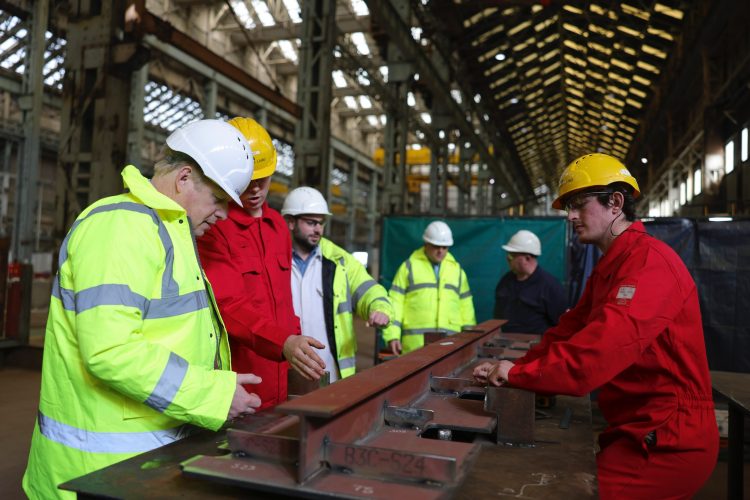
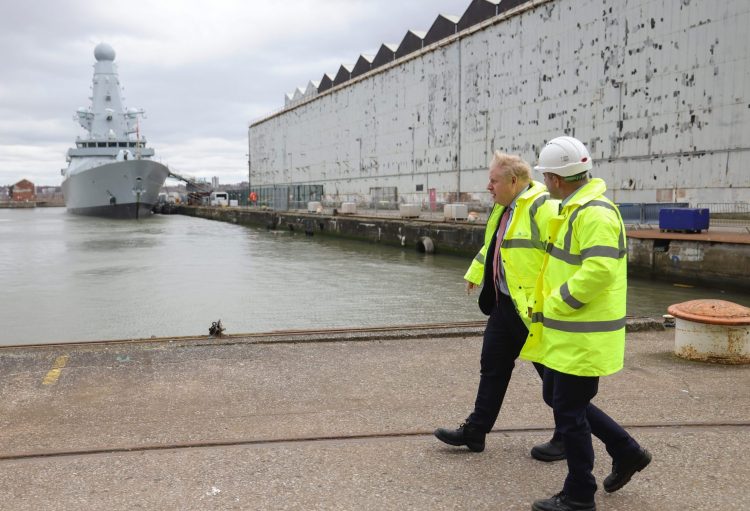
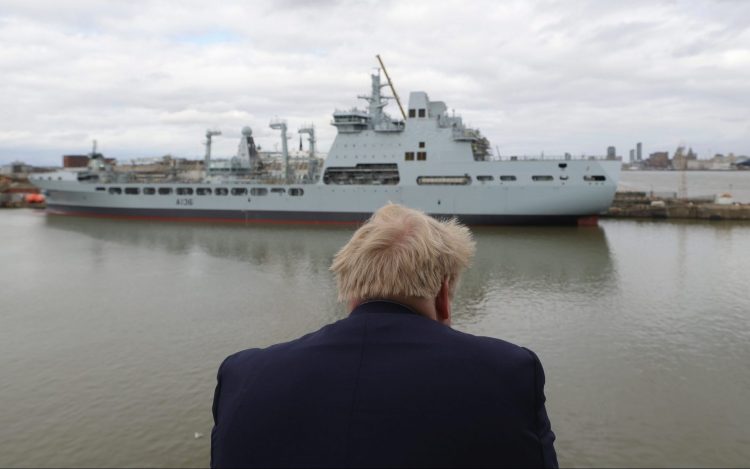
The UK’s historic shipbuilding industry currently supports 42,600 jobs across the UK, from Cornwall to Belfast and Govan, and contributes more than £2.8bn to the economy. Mr Johnson said: “Shipbuilding has been in our blood for centuries and I want to ensure it remains at the heart of British industry for generations to come.
“The National Shipbuilding Strategy will transform this important and crucial industry, creating jobs, driving technology development and upskilling the shipbuilders of tomorrow, ensuring we are levelling up across every dock, port and shipyard in the UK.”
Following the visit, Cammell Laird managing director Mike Hill said: “Cammell Laird has completed some of the most ambitious shipbuilding and block build projects in modern times, from the block build of the Queen Elizabeth Aircraft Carriers, the Astute and Dreadnought class submarines to the recent construction of the RRS Sir David Attenborough.
“Cammell Laird remains right at the heart of UK shipbuilding, and we welcomed this opportunity to showcase our facilities, skills and capabilities to the Prime Minister and Defence Secretary today.”
And David McGinley, chief executive of Cammell Laird Shiprepairers and Shipbuilders welcomed the refresh on the National Shipbuilding Strategy saying it came at a “critical time for British shipyards and the wider supply chain”.
Click here to read the full National Shipbuilding Strategy refresh
He added: “A more continuous pipeline and transparency from the UK Government will ensure continuity and a welcome end to the stop start nature of UK shipbuilding. This will arm the UK’s shipbuilding enterprise with the confidence to upskill their workforce and invest in their capabilities and new technology.”
The PM also revealed plans to establish a new UK Shipbuilding Skills Taskforce, led by the Department for Education. The taskforce will work with industry and training providers across the UK to identify and address skills gaps.
And the Department for Transport will invest £206m in the UK Shipping Office for Reducing Emissions (UK-SHORE) to match fund research and development in zero emission vessels and infrastructure and ensure our place as global leader in green technology.
A new £11m Maritime Capability Campaign Office (MCCO) within the Department for International Trade will also be established.
The MCCO will coordinate export support across government and industry and use robust analysis to improve our understanding about global markets, helping maritime suppliers to win export orders and increase UK market share.

